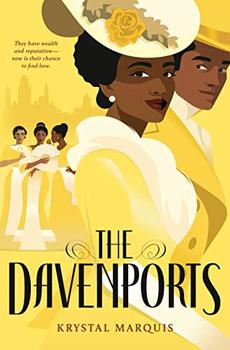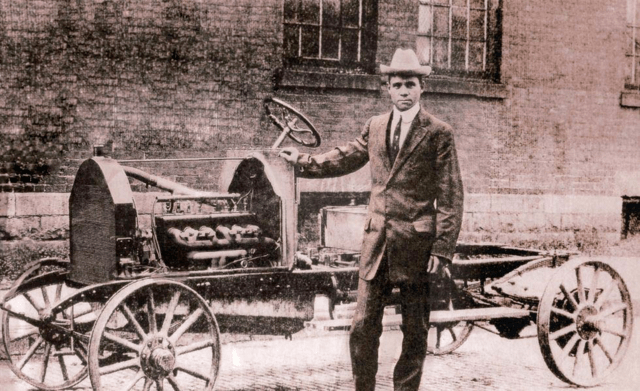Summary | Excerpt | Reviews | Beyond the Book | Read-Alikes | Genres & Themes | Author Bio

This article relates to The Davenports
 Krystal Marquis mentions in a brief author's note that her debut novel The Davenports was "inspired by the story of the C.R. Patterson & Sons carriage company, founded by a proud patriarch who escaped enslavement to become a wealthy and respected entrepreneur."
Krystal Marquis mentions in a brief author's note that her debut novel The Davenports was "inspired by the story of the C.R. Patterson & Sons carriage company, founded by a proud patriarch who escaped enslavement to become a wealthy and respected entrepreneur."
Charles Richard Patterson was born into slavery on a plantation in Virginia in 1833. Like many enslaved people, his life was not well documented, and sources vary about whether his family bought their freedom or whether he alone escaped. Either way, the historical record finds him settling in the small abolitionist town of Greenfield, Ohio, between the 1840s and 1860s, where he worked as a blacksmith (a trade he may have learned while enslaved) and later went into business with a white carriage-maker, J.P. Lowe. Eventually, he bought out Lowe's shares and took over sole ownership of the business, which employed more than two dozen people by the turn of the century. The company's slogan became "If it's a Patterson it's a good one."
Just as occurs with the family business in The Davenports, C.R. Patterson's son Frederick realized that the horse-drawn carriage business had an expiration date. When Frederick, a college graduate (and the first Black Ohio State football player) took over the family business upon C.R.'s death in 1910, he set about first repairing "horseless carriages," and then, starting in 1915, manufacturing the company's own make of automobiles, the Patterson-Greenfield, which sold for a price of around $700-850 (approximately $20K to $25K in today's currency). Among their various models was the 4-cylinder, 30-horsepower "Red Devil" speedster.
The Patterson business, built on hand-crafting with low profit margins, couldn't compete with Henry Ford's assembly lines, and ceased manufacturing new automobiles in 1919 (after producing somewhere between 30 and 150 vehicles total). The company, however, persisted in one form or another—repairing automobiles and repurposing other manufacturers' chassis into new truck and bus bodies—until 1939. More than a hundred years since its beginnings, C.R. Patterson and Sons remains the only Black-owned American automobile company in history, and both C.R. Patterson and Frederick Patterson were inducted into the Automotive Hall of Fame in 2020. Unfortunately, no Patterson-built automobiles are known to exist today.
Marquis relocates her imaginary Davenports from Ohio to Chicago, placing them at the center of a newly forming activist moment, but the novel honors the ingenuity and entrepreneurship of the family that served as her inspiration.
The first Patterson-Greenfield car, c. 1915 (CC BY-SA 4.0)
Filed under People, Eras & Events
![]() This "beyond the book article" relates to The Davenports. It originally ran in February 2023 and has been updated for the
January 2024 paperback edition.
Go to magazine.
This "beyond the book article" relates to The Davenports. It originally ran in February 2023 and has been updated for the
January 2024 paperback edition.
Go to magazine.
Your guide toexceptional books
BookBrowse seeks out and recommends the best in contemporary fiction and nonfiction—books that not only engage and entertain but also deepen our understanding of ourselves and the world around us.